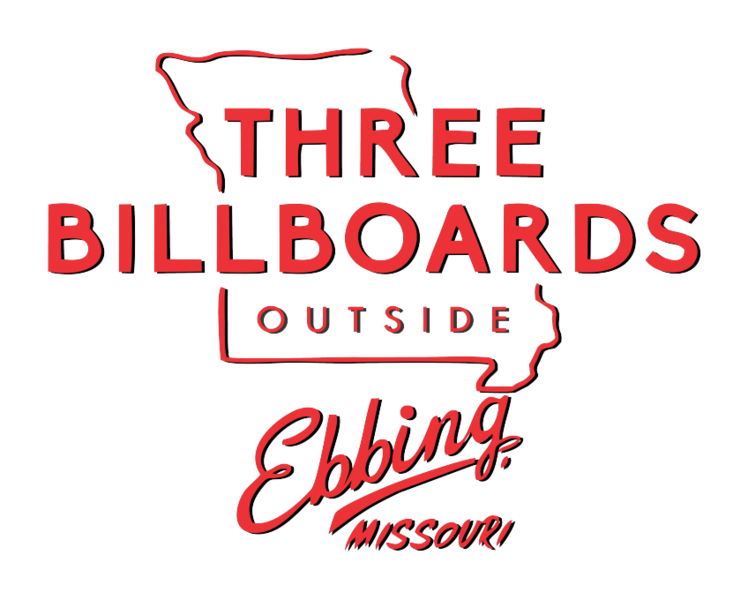Three Billboards Outside Ebbing Missouri: Review
Three Billboards Outside of Ebbing, Missouri is a deceptively simple film, despite its rather long and complicated name. Set in the small, nondescript town of Ebbing, deep in the American South, Mildred (Frances McDormand) purchases three billboards on the edge of town to use in an attack against the local police department that has failed, after seven months, to solve her daughter’s murder. The billboards certainly serve their purpose in gaining attention for Mildred’s cause, garnering outrage in the local community over the humiliation of well-liked chief Willoughby (Woody Harrleson); outrage that is expressed especially by the local racist cop Dixon (Sam Rockwell). What follows is the definition of ‘that escalated quickly’, as Mildred enters a one-woman war with the local police.

Image credit: Wikimedia Commons
The first thing that needs to be established about Three Billboards is that it is a fantastically mean-spirited film. It paints a bleak yet hysterical picture of the small American town and the characters that inhabit it and makes sure to never shy away from the violence they inflict upon each other. The town is everywhere and nowhere but shot with such a close intimacy that it becomes almost instantly familiar, and the violence running rampant on its streets feels like it could be happening just outside the cinema walls. The many one-liners attack every facet of American life with unflinching delight. They are often so cutting that they can be viscerally felt through the screen, partly due to the genius screenplay by director Martin McDonagh, and also because of the savage delivery of the brilliant cast.
Woody Harrelson does a lot with a short amount of time, Lucas Hedges does what he does best as Mildred’s beleaguered son and proves yet again that he deserves a bigger role. On the note of bigger roles, Sam Rockwell, as usual, sets the whole thing on fire with a brutally honest yet wonderfully comedic performance as the brilliantly awful Officer Dixon. But they all pale in comparison to the power of Frances McDormand, whose performance becomes an open wound that all of the characters, and the audience, are forced to feel. McDormand gives one of the best performances of the year, certainly deserving of every nomination she will likely receive, and provides an unflinching presentation of grief and how it can manifest. In this case, as an anger that seeps from every frame she occupies. She turns her grief into a weapon that is used against a variety of men in town – her abusive ex, the racist cop, the creepy dentist and more – but despite their best efforts to villainise her, no one is allowed to forget that she is, above all, a grieving mother learning to deal with her new role.
Mildred (Frances McDormand) purchases three billboards on the edge of town to use in an attack against the local police department that has failed, after seven months, to solve her daughter’s murder.
However, despite the wonderful, cruel simplicity of the plot and the stunning performances that support it, there is something uncomfortable sat at the heart of Three Billboards. It offers a brutal send-up of small-town American society and, as such, must acknowledge the racism that resides within. It is implied that Dixon has beaten and tortured people of colour in his custody and there is even a particularly memorable joke about it. This in and of itself isn’t so bad, we know as an audience that cops like Dixon exist and to acknowledge their existence and disapproving of it is good. The problem comes in Dixon’s redemption arc. Spoilers won’t be given here but it has to be said that given how quickly Dixon is established as a violent racist and the natural antagonist to Mildred, his redemption doesn’t feel quite earned.
There is something uncomfortable sat at the heart of Three Billboards.
The discussion of race within Three Billboards has been going for a while now and will likely continue, and from this discussion, two opinions have arisen. Either the film is a clever deconstruction of the violence of American life that ultimately finds the possibility for redemption in even the most hopeless of cases, or it’s a mean little movie that fails in its criticism of American society. Both arguments are equally valid and will be doing the rounds in the run-up to awards season as this film will likely be a juggernaut of a contender if SAG and Golden Globe nominations are to be believed. But, please, see this movie before choosing which side of the white picket fence you sit on, because if you choose to believe the former, then this is a stunning film with a truly phenomenal finale that will break your heart while allowing you to remain optimistic about the future.
Three Billboards Outside Ebbing, Missouri will be released in the UK on January 12, 2018

Comments